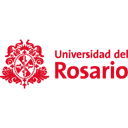This course is part of Derechos humanos: desafíos contemporáneos.
This course cannot be purchased separately - to access the complete learning experience, graded assignments, and earn certificates, you'll need to enroll in the full Human Rights: Contemporary Challenges MicroMasters program. You can audit this specific course for free to explore the content, which includes access to course materials and lectures. This allows you to learn at your own pace without any financial commitment.
Spanish
Spanish
What you'll learn
Understand the main characteristics of 21st-century medicine and biotechnological convergence
Describe the ethical challenges related to the interaction of technology with humans
Identify the main characteristics and principles of emerging rights
Recognize social and scientific developments leading to emergence of new rights
Recognize jurisprudential criteria for emerging rights in international and comparative law
Evaluate cases involving emerging rights based on legal and jurisprudential guidelines
Skills you'll gain
This course includes:
56 Hours PreRecorded video
Graded assignments and exams
Access on Mobile, Tablet, Desktop
Limited Access access
Shareable certificate
Closed caption
Get a Completion Certificate
Share your certificate with prospective employers and your professional network on LinkedIn.
Created by
Provided by

Top companies offer this course to their employees
Top companies provide this course to enhance their employees' skills, ensuring they excel in handling complex projects and drive organizational success.





There are 4 modules in this course
This course explores the intersection of emerging scientific technologies and human rights. It begins by introducing the concept of emerging rights within the framework of bioconstitutionalism and transhumanism. Students then learn about omics sciences, including personalized precision medicine and regenerative medicine, before moving on to explore nanotechnology, robotics, and neuroscience applications. The final section focuses on the ethical and legal principles associated with these technological advances, examining international standards and responsibilities. Throughout the course, participants analyze how scientific developments in biomedicine and biotechnology have led to new human rights considerations, learning to evaluate cases based on national and international legal guidelines.
From human rights to bioconstitutionalism
Module 1
Omics Sciences
Module 2
Nanotechnology, robotics and neuroscience
Module 3
Ethical and legal principles, standards and responsibilities associated with emerging rights
Module 4
Fee Structure
Individual course purchase is not available - to enroll in this course with a certificate, you need to purchase the complete Professional Certificate Course. For enrollment and detailed fee structure, visit the following: Derechos humanos: desafíos contemporáneos
Payment options
Financial Aid
Instructors
Professor of Law and Bioethics at Universidad del Rosario
Diana Rocío Bernal Camargo is a full professor at Universidad del Rosario's Faculty of Law and a researcher in the Human Rights Research Group. She specializes in bioethics, biolaw, and human rights, holding degrees from the University of Boyacá, Externado University of Colombia, Complutense University of Madrid, and Rey Juan Carlos University. She is also a postdoctoral fellow in Bioethics and International Human Rights Law from the Carolina Foundation – Alfonso X University of Spain.
Professor of Medicine, Bioethics, and Biolaw at Universidad del Rosario
Dr. Ana Isabel Gómez Córdoba is a surgeon specializing in pediatrics, public health management, and medical law, with a Master’s in Bioethics from Universidad El Bosque and a PhD in Legal Sciences from Pontificia Universidad Javeriana. She is a full professor and Academic Vice Dean at the School of Medicine and Health Sciences at Universidad del Rosario, where she co-directs the Specialization in Medical and Health Law and the Master’s Program in Biolaw and Bioethics. Her research focuses on bioethics, biolaw, and medical education, contributing to international projects like Tuning Latin America and 6X4 UEALC. She has played a key role in developing regulations on dignified death and medical ethics in Colombia and is a recognized lecturer in her field.
Testimonials
Testimonials and success stories are a testament to the quality of this program and its impact on your career and learning journey. Be the first to help others make an informed decision by sharing your review of the course.
Frequently asked questions
Below are some of the most commonly asked questions about this course. We aim to provide clear and concise answers to help you better understand the course content, structure, and any other relevant information. If you have any additional questions or if your question is not listed here, please don't hesitate to reach out to our support team for further assistance.





